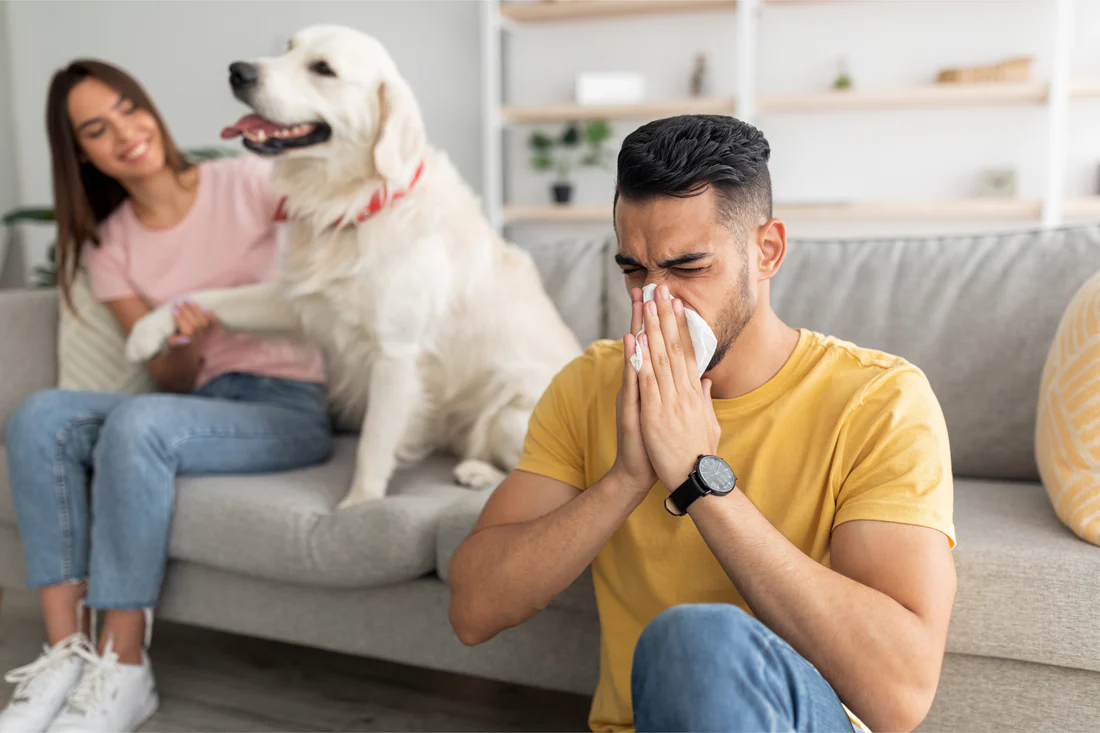As a pet owner, you must be aware of the challenges of managing your furry friend’s allergies. But have you considered how climate change might be impacting your pet’s allergy symptoms? Rising temperatures, changing weather patterns, and increased pollen production are all contributing to a perfect storm of allergy woes for pets. It’s essential to work closely with your veterinarian in Clearwater to develop a plan for managing your pet’s allergies in the face of climate change.
In this article, we’ll explore the impact of climate change on pet allergies, discussing the science behind the issue, regional variations, and practical advice for pet owners.
Rising Temperatures and Pollen Counts
Climate change is characterized by rising temperatures, changes in weather patterns, and increasing airborne pollen levels ¹. As global temperatures rise, plants produce more pollen, leading to longer and more severe allergy seasons. This is particularly problematic for pets, who spend more time outdoors and are more susceptible to environmental allergens.
What Is The Impact of Climate Changes on Pet Allergies?
Climate change is having a significant impact on pet allergies, exacerbating existing allergies and creating new ones. Here are some ways climate change is affecting pet allergies:
Rising Temperatures and Pollen Counts
- Increased pollen production: Warmer temperatures and changing weather patterns lead to increased pollen production, exacerbating allergies in pets.
- Longer allergy seasons: Climate change is causing allergy seasons to start earlier and last longer, increasing the duration of allergy symptoms in pets.
Changes in Weather Patterns
- More frequent and severe weather events: Climate change is leading to more frequent and severe weather events, such as hurricanes, wildfires, and droughts, which can exacerbate pet allergies.
- Increased mold growth: Changing weather patterns and increased humidity can lead to increased mold growth, which can trigger allergies in pets.

Shifts in Allergenic Plant Species
- Changes in plant species distribution: Climate change is causing shifts in the distribution of plant species, leading to the introduction of new allergenic plants in certain regions.
- Increased ragweed growth: Climate change is causing an increase in ragweed growth, a common allergenic plant that can exacerbate allergies in pets.
Increased Risk of Skin Allergies
- Warmer temperatures and humidity: Climate change is leading to warmer temperatures and increased humidity, creating an ideal environment for skin allergies to develop in pets.
- Increased flea and tick populations: Climate change is causing an increase in flea and tick populations, which can lead to skin allergies and other health issues in pets.
Regional Variations and Pet Allergies
The impact of climate change on pet allergies varies by region. For example:
- Warmer climates: Pets living in warmer climates, such as the southern United States, may experience longer and more severe allergy seasons due to increased pollen production.
- Cooler climates: Pets living in cooler climates, such as the northern United States, may experience shorter and less severe allergy seasons due to decreased pollen production.
Practical Advice for Pet Owners
Here are some practical tips:
- Monitor pollen counts: Check local pollen counts to plan outdoor activities and minimize exposure to allergens.
- Keep pets indoors: Keep pets indoors during peak pollen hours (usually between 5 am and 10 am) to reduce exposure to allergens.
- Use HEPA filters: Use HEPA filters in your home to reduce airborne allergens and improve indoor air quality.
- Consult with your veterinarian: Consult with your veterinarian to develop a plan for managing your pet’s allergies, including medication, dietary changes, and environmental modifications.
Climate change is having a profound impact on pet allergies, exacerbating existing allergies and creating new ones. By understanding the science behind the issue and taking practical steps to mitigate the effects, pet owners can help their pets thrive in a changing world.









